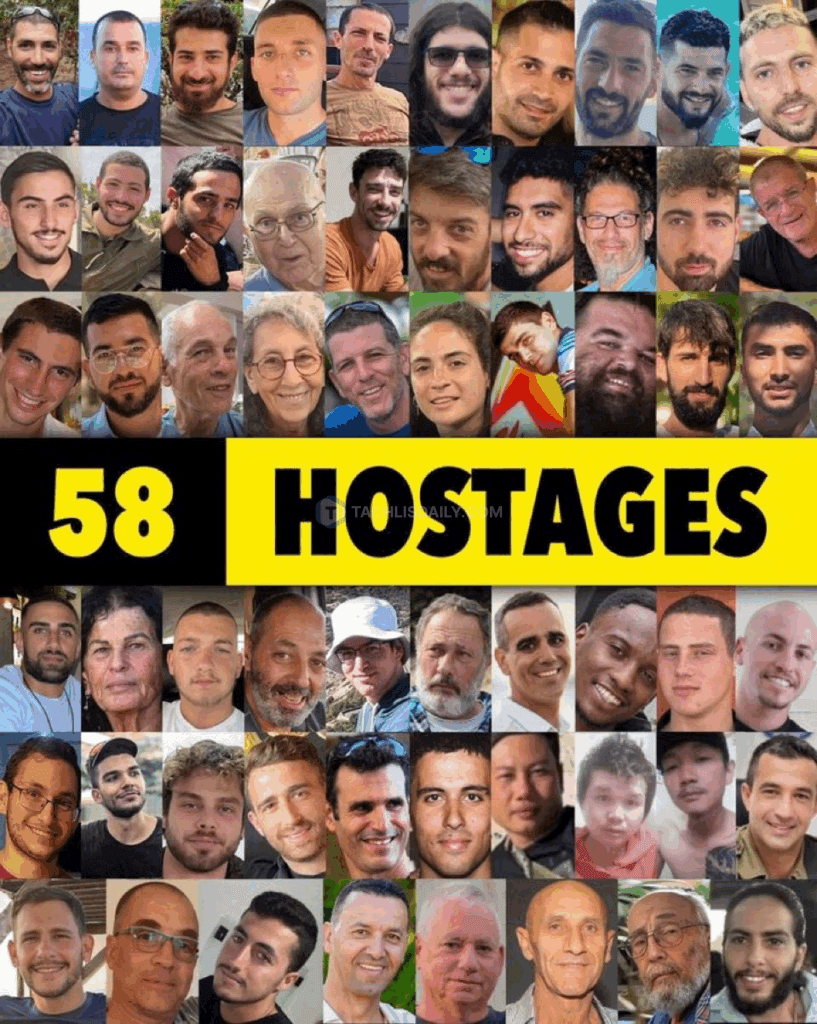
Israel marked 600 days since the October 7, 2023, terror assault by Hamas, as families of the 58 remaining hostages held in Gaza demanded their release and condemned the government’s failure to bring them home. The somber milestone was met with protests and organized events across the country, signaling both public frustration and growing calls for a negotiated deal.
In Tel Aviv, families gathered at the Hostages Forum, expressing anger over what they describe as abandonment by government leadership. Among them were relatives of those kidnapped from communities like Kibbutz Nir Oz and IDF bases, including individuals still believed to be alive and others confirmed to have died in captivity.
Demonstrators organized symbolic actions beginning at 6:29 a.m.—the exact time of the original attack—forming human chains and displays across cities including Tel Aviv, Jerusalem, Zichron Yaakov, and others. In Hostages Square, participants watched as a digital counter ticked to 600 days, then released yellow balloons in a plea to “bring them home now.”
The government has faced intensifying criticism over its handling of hostage negotiations. Since January, no progress has been made under the current team led by Strategic Affairs Minister Ron Dermer, with only one hostage released through a deal not coordinated by Israel. Protesters are now calling not only for a hostage deal but also for new national elections and a state commission to investigate the October 7 failures.
Some families accused the leadership of treating the crisis as a private burden for each affected household rather than a national concern. Others warned that public trust in state institutions and military service could continue to erode if government accountability remains absent.
The remaining hostages include individuals abducted from southern Israeli communities during the surprise assault, which saw more than 1,200 people killed and over 250 taken into Gaza. At least 35 of the 58 hostages are confirmed dead, with around 20 believed to be alive. Many were civilians; others include soldiers and children.
Since the war began, Israel has rescued eight hostages alive and recovered the bodies of 41. In return for several temporary ceasefires, the Israeli government released over 2,000 Palestinian prisoners and detainees. Critics argue that despite these exchanges, the situation has stalled and government leadership has failed to achieve any lasting breakthrough.











